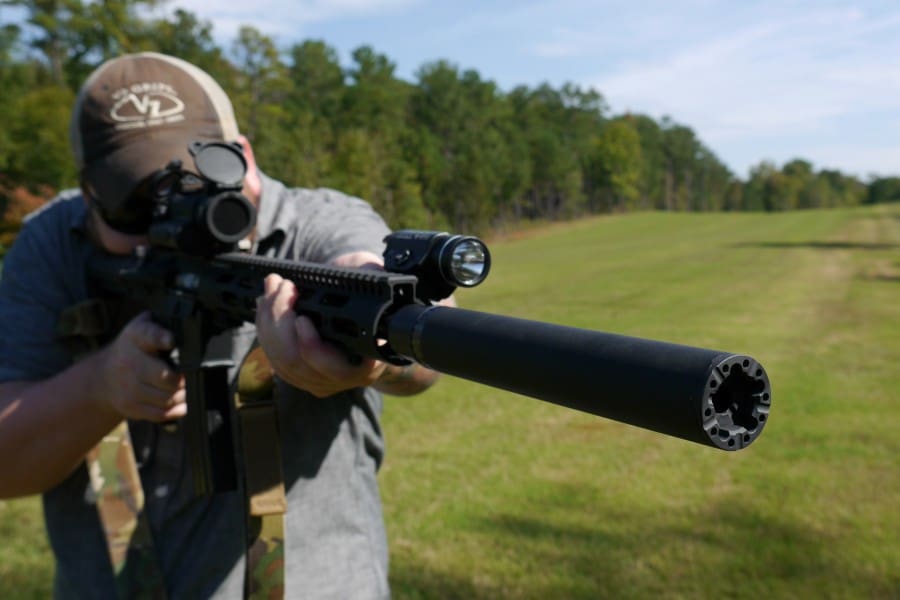In a time when so much medical “science” seems to be politically manipulated to make an argument against gun ownership and the Second Amendment in the United States, Stephen Gutowski of The Reload reports at least one medical group has looked at the science and come out with an endorsement that if allowed to influence the rationale of legislation, would improve the health and hearing of hundreds of thousands of Americans. The American Academy of Otolaryngology–Head and Neck Surgery (AAO-HNS), representing over 13,000 ear, nose and throat specialists, issued a position statement this month supporting the use of suppressors, often called silencers, in reducing harmful noise levels from firearms. It is their official stance that firearm suppressors are an effective tool for preventing hearing loss.
In fact, the AAO-HNS highlighted multiple studies showing that suppressors help mitigate the risk of permanent, noise-induced hearing damage. According to the statement, “Sound suppressors are mechanical devices attached to the barrel of a firearm designed to reduce harmful impulse noise of firearms at its source.” The group also referenced research from the Centers for Disease Control and Prevention (CDC) indicating that suppressors, which can reduce muzzle blast noise by up to 30 decibels, are the only effective method for controlling noise at its source for shooters.
Hearing Loss Prevention a Priority
The academy’s statement emphasized the importance of combining suppressors with traditional hearing protection measures, such as earplugs or earmuffs, to achieve the best results.
“Their benefit is additive when used with ear-level hearing protection devices such as circumaural muffs or ear plugs,” the statement noted.
Dr. Timothy Wheeler, a board-certified otolaryngologist and life fellow of AAO-HNS, was a key proponent of the position statement. Wheeler, who is also the founder of Doctors For Responsible Gun Ownership, stressed that suppressors are a vital public health tool for preventing noise-induced hearing loss, which he described as untreatable and entirely preventable.
“Noise-induced hearing loss is permanent and untreatable,” Wheeler told The Reload. “Suppressors represent a classic public health tool for preventing inner ear hearing loss.”
Potential Implications for Policy
While the AAO-HNS statement is strictly scientific and does not advocate for specific policy changes, it could influence discussions around the regulation of firearm suppressors. Currently, suppressors are tightly controlled under the National Firearms Act, requiring an extensive application process, a $200 tax stamp and sometimes months of waiting for approval from the Bureau of Alcohol, Tobacco, Firearms, and Explosives (ATF).
Recent efforts by the ATF to streamline the registration process have reduced wait times, but many gun-rights advocates continue to push for legislative reform. Supporters hope the AAO-HNS statement will lend credibility to measures such as the Hearing Protection Act, which seeks to deregulate suppressors.
“Suppressors dependably reduce the impact or impulse noise exposure of a gunshot by about 30 decibels,” Wheeler said. “If you oppose making this useful firearm accessory available to people who can benefit from it, then you are opposing protecting them from hearing loss. That’s the implication, and that’s the truth.”
Neutral But Significant
Wheeler underscored that the AAO-HNS statement is neutral and focused solely on the science.
“It’s purely a scientifically based observation,” he said. “They are saying nothing beyond what’s in the statement.”
The endorsement highlights the academy’s longstanding commitment to preventing hearing loss, which remains a significant public health concern. By recognizing suppressors as a practical solution, the AAO-HNS has sparked renewed conversations on the balance between public health measures and regulatory frameworks.
Read full article here


